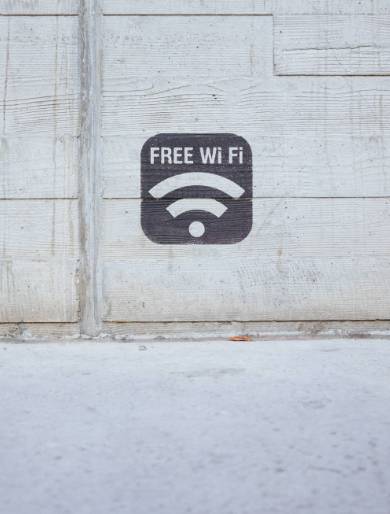AccountProtections-Secure-Mobile
How to Secure Your Mobile Device
Securing your mobile device(s). It is no secret that the technology we use can turn us into a target for viruses and cyberattacks if they are not properly secured. When it comes to the use of mobile devices, there is no manual provided with a phone to teach the user about mobile security. In addition, threats are constantly evolving and adapting to our patterns.
Keep your phone locked
To protect your devices, use strong passwords, passphrases, or other features such as touch or face identification (dependent on the device’s capabilities). If your device is lost or stolen, securing it can help safeguard your information to keep prying eyes away.
When enabling a lock screen, you’ll have the option to choose how long the phone can be idle before locking. Be sure to choose the shortest amount of time possible. For example, on the iPhone, you can select immediately. This will protect you by automatically enacting the lock screen even if you forget to lock it yourself.

Keep your phone up-to-date
Updates to your mobile device(s) operating system are designed to improve your experience. This could include everything from speed to security. Despite the fact that they occur regularly and consumers tend to click through quickly or ask the device to remember them in the future, it's critical to stay on top of them. Both iOS and Android devices can be protected with these updates from newly discovered threats.
To check if your phone’s OS is up to date, go to settings, “about phone” or “general” and click “system updates” or “software update.”
Enable Find my iPhone
Enabling find my iPhone on Apple devices allows you to track the device if it is lost or stolen. If you have upgraded your device operating system to iOS15 or later, you can additionally enable “Find My Network,” which lets you find your phone even if it’s turned off. We also recommend enabling “Send Last Location” which will send the last known location of the device before the battery dies.
Set secure passwords for apps
Hackers will have a harder time guessing passwords if you use strong passwords on your apps. Setting a distinct password for each app is also recommended. If a single password is cracked, the hacker will not have access to all of your data.
GVSU offers LastPass as a secure password manager that remembers your passwords and logs you in to your online accounts as you work. LastPass will not only generate strong passwords for you and help deter phishing attack, but it will streamline your everyday work flow and save you time by eliminating your password problems.
For more information visit Getting Started with LastPass
Use Multi-Factor Authentication
Okta allows various multifactor authenticators; Duo Security, Okta Verify, Google Authenticator, Authy, and Biometrics
Using multi-factor authentication increases security by
- Helping control who has access to your files
- Lowering password risks
- Reducing identity theft and fraud
- Reducing the risk of take overs
For more information visit Getting Started with Okta or How to Sign Up for Duo
Encrypt your Data
Your mobile devices hold a lot of data. If it’s lost or stolen, your emails, contacts, and financial information can be at risk. If you have an apple mobile device, encryption is enabled by default when you setup enabled and setup a passcode.
To encrypt an Android, you must first be sure your device is 80% charged. If you rooted your device, it needs to be unrooted (by default devices are unrooted).Once these things are done, go to “Security” and choose “Encrypt Phone.” If you don’t charge your device, unroot it or interrupt the encryption process, you may lose all your data. Encryption can take an hour or more.

Connect to secure Wi-Fi
Public wireless accounts in hotels, airports, and restaurants lack the protections to keep your connections safe. Cybercriminals easily gain access to passwords and other data on these types of wireless networks. We recommend to use your mobile data instead of a free Wi-Fi connection.
- Note: if traveling internationally try not to use mobile data until you get back to your hotel or join a secure Wi-Fi. Otherwise, this could incur high mobile charges for internal data usage.
When in Doubt, Don't Respond!
Phishing is now taking place in all communication mediums. This includes text messages, phone calls, and voicemails that are fraudulent. Requests for personal information or immediate action on mobile devices are virtually always scams, much like email.
This is a reminder that GVSU Information Technology will update your GVSU device and applications through our controlled management procedures and that you should never click on any email asking you to perform an update or download for GVSU supported enterprise applications.
